The Wife Takes a Flyer

Brief Synopsis
Cast & Crew
Richard Wallace
Joan Bennett
Franchot Tone
Allyn Joslyn
Cecil Cunningham
Roger Clark
Film Details
Technical Specs

Synopsis
At Nazi headquarters in occupied Holland, Major Zellfritz is assigned to search for a downed British pilot. The amorous major becomes sidetracked by a pair of shapely legs, and follows their owner, Anita Woverman, to her house. To be closer to Anita, Zellfritz demands that the Wovermans billet him and his men at the house. Upstairs, meanwhile, the Wovermans' butler, Jan, is aiding the escaped pilot, Christopher Reynolds, who has sought refuge at the house. Upon introducing himself to the family, Zellfritz learns that Anita, the Wovermans' daughter-in-law, is seeking a divorce from her husband Hendrik, who is soon to be released from a mental institution. When a group of stormtroopers arrives at the house in search of the missing pilot, Mrs. Woverman learns of Reynolds' presence, and to shield him, claims that he is her son Hendrik. After Mrs. Woverman informs Reynolds that his "wife" Anita is divorcing him, he begs her to reconsider, and Anita, taken aback by the sudden appearance her "husband," agrees. After the disappointed major protests Anita's decision and leaves the room, the Wovermans insist that Reynolds continue the charade and stay until the divorce trial the following morning. That night, Zellfritz peruses the family photo book, and Reynolds feigns an attack of insanity to divert him. Later, to the family's relief, a telegram arrives, informing them that Hendrik has suffered a relapse and will not be released for a day or two. After the family retires to bed, the stormtroopers reappear to search the house, causing the major to declare that the British pilot is not there. Afterward, Zellfritz makes romantic overtures to Anita, but she rejects him. At divorce court the next morning, the Wovermans are anxiously awaiting Reynolds' arrival when the major appears and announces that he has dispatched two soldiers to follow him. Soon after, Reynolds arrives, escorted by two Nazis. Smitten by Anita's charms, Reynolds decides to protect her from Zellfritz's advances by contesting the divorce, and asks for a reconciliation. Although Anita testifies about her husband's history of drunkenness, Reynolds proclaims his undying love for her, prompting the judge to order them to his chambers to discuss a reconciliation. There, Reynolds tells Anita that he must meet a contact at the Savoy Café and asks her to cover for him while he slips out a window. At the café, Reynolds contacts Gustav, a waiter, who delivers a secret document sandwiched between two pieces of bread. After Reynolds grabs the sandwich and leaves, a suspicious Nazi officer details several soldiers to follow him. Later, Reynolds bursts into the courtroom, pretending to be drunk. When the soldiers enter, Reynolds sweeps Anita into his arms and passes the documents to her. Once again, Zellfritz vouches for Reynolds and dismisses the soldiers. After the judge grants Anita her divorce, she drops out of sight to manage Countess Oldenburg's boardinghouse for spinsters. Desperately seeking Anita, the major orders the Wovermans' phone tapped, and when she phones Reynolds to provide him with her new address, the major pursues her there. Soon after, Reynolds arrives, interrupting the major's tete-a-tete with Anita. Reynolds surreptiously extracts the documents from Anita's purse, then the stormtroopers appear to arrest Hendrik, who has just escaped from the institution, for stealing alcohol from a government store. When the major insists that he has spent the afternoon in court with Hendrik, the soldiers, satisfied with the major's explanation, depart. Upon learning that the major is related to a prominent Nazi submarine engineer, Reynolds warmly endorses the major's courtship of Anita and suggests that he take her out that night. After Zellfritz leaves, Reynolds instructs Anita to pump him about his relative. That night, as Reynolds is scrutinizing the documents, he is accosted by a stranger on the street. The man is Reynolds' contact, Keith, who provides him with the identity papers of a beer truck driver. When Keith mentions that an Allied agent with a shortwave radio is operating in the area, Reynolds arranges to meet him at the agent's house later that night. Upon arriving home from her date with the major, Anita finds Reynolds waiting for her. When she conveys the news that the major's relative will complete his mission in Eselmunder in three days, Reynolds deduces that the Nazis must be assembling a submarine fleet there. At the house of the agent with the transmitter, Keith and Reynolds spy several Gestapo men inside and realize that the agent has been arrested. After a skirmish with the Gestapo, Reynolds returns to the spinsters' house, and the next morning, Anita finds him asleep on the living room couch. Reynolds explains his predicament and tries to conceive of another way to transmit the information about the submarine fleet. Anita recalls that the major drops propaganda leaflets nightly over England, and apprised of Reynolds' true identity, the spinsters offer their help in transcribing the location of the submarine site onto the pamphlets. That night, as Anita entertains Zellfritz in her room, the spinsters feverishly scrawl the information onto the pamphlets, but are interrupted by Hendrik pounding franctically at the door. When Hendrik tells Reynolds that he knows about the masquerade and asks his help in evading the Nazis, Reynolds provides him with the identification card of the beer truck driver and ushers him back into the street. After the pamphlets are safely stuffed back into the major's bag, Reynolds bursts into Anita's room, claiming that the Gestapo are after him. Zellfritz agrees to help him escape, but first insists upon stopping at the airport to drop off his pamplets. At the airport, Reynolds is arrested and sentenced to die for desecrating a poster of Hitler. As a last request, Anita asks to remarry her husband and the court agrees. After the ceremony is completed, the spinsters set off an air raid alarm. In the chaos, Anita, Reynolds and the countess climb into the major's car. After knocking the major unconscious, Reynolds dons his uniform and speeds away to a waiting plane. The trio then flies to freedom, leaving the major behind, dressed only in his underwear.

Director
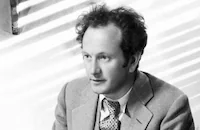
Richard Wallace
Cast
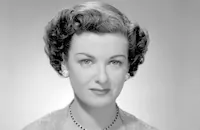
Joan Bennett

Franchot Tone
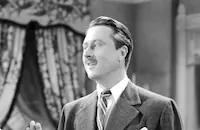
Allyn Joslyn

Cecil Cunningham
Roger Clark
Lloyd Corrigan
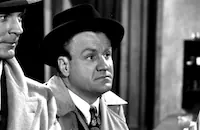
Lyle Latell
Georgia Caine
Barbara Brown
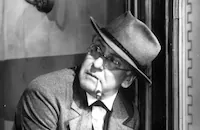
Erskine Sanford
Chester Clute

Hans Conried
Romaine Callender
Aubrey Mather
William Edmunds
Curtis Railing
Nora Cecil
Kurt Katch
Margaret Seddon
Kate Mackenna
Gordon Richards
Frederic Bolton
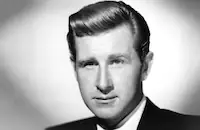
Lloyd Bridges
John Vosper
Gohr Van Vleck
Erik Rolf
Carl Ekberg
Bert Roach
Lloyd Whitlock
Hallene Hill
Mary Young
Gertrude W. Hoffmann
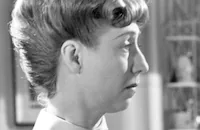
Marie Blake
Henry Zynda
Hugh Beaumont
John Merton

James Millican
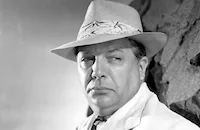
Cy Kendall
Manart Kippen

Steven Geray
Joe Mcguinn
Wheaton Chambers
Vernon Downing
Leslie Denison
Max Hoffman Jr.
Max Wagner
Frank Alten
Charles Hamilton
David Newell
Arno Frey
George Turner
William Yetter
Walter Stiritz
Pat Lane
Chris Frank
John Peters
Henry Victor
Colin Blair
Mary Bertrand
Josephine Allen
Belle Johnstone
Nellie Farrell
Phoebe Rudd
Agnes Steele
Stella Lesaint
Eleanor Wood
Marie Spingold
Minnie Steele
Lucille Isle
Elsie Bishop
Crew
Eugene Anderson
Lionel Banks
George Cooper
Jay Dratler
Gene Havlick
Werner R. Heymann
Irene
Alfred S. Karlsen
Gina Kaus
Gina Kaus
William Mull
Cary Odell
Franz F. Planer
B. P. Schulberg
Harry Segall
M. W. Stoloff

Videos
Movie Clip
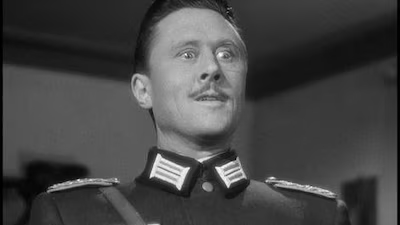

Film Details
Technical Specs

Articles
The Wife Takes a Flyer
The story takes place in Nazi-occupied Holland, where the Gestapo is searching for Christopher Reynolds, an American who served in Britain's Royal Air Force until he was shot down. The head of the hunting party is Major Zellfritz, the most bumbling and self-important Nazi officer this side of Colonel Klink in the 1965-71 sitcom Hogan's Heroes. Christopher finds shelter in the mildly dysfunctional Woverman household, where family members give him a place to stay and pass him off as one of their own, letting him borrow the identity of hard-drinking Hendrik Woverman, who's in rehab at a sanatorium.
The real Hendrik is married to Anita Woverman, the heroine of the story, and as soon as Christopher sees her he wishes she were more than just his make-believe wife. Further complicating things, Major Zellfritz starts wooing Anita, showering her with flowers that accomplish nothing beyond making her sneeze. Lying low in the Woverman house, Christopher looks for chances to continue his anti-Nazi work, eventually recruiting Anita to do some spying as well. On top of all this, Anita needs to divorce Hendrik but the bogus "Hendrik" would rather stay "married," and there's a strong chance that the actual Hendrik will get discharged from the sanatorium and suddenly show up, blowing Christopher's cover and getting the Woverman clan in hugely serious trouble with the Nazi overlords.
The screenplay by Gina Kaus and Jay Dratler structures the story as a series of extended set pieces, limiting the number of settings for what appears to have been a modestly budgeted production. Many scenes unfold in the Woverman living room; there's a long sequence in a divorce court; later scenes transpire in a home for old ladies where Anita takes up residence after the divorce; and the climax happens in a Nazi court where Christopher is on trial for his life. The picture was directed by the undistinguished but prolific Richard Wallace, who gives the tale enough visual energy to keep it from seeming terribly static or repetitive.
The Wife Takes a Flyer was released in Britain as A Yank in Dutch, and the silliness of its punning titles indicates the silliness of the movie. There are puns in the screenplay too - when someone asks what country supplied a cooked chicken that Major Zellfritz brings for dinner, for instance, he replies that "every country gives us the bird." The movie also has cleverer touches here and there, as when Christopher sends a covert signal to an anti-Nazi sympathizer by peeling away part of the label on a beer bottle, turning "DRAFT" into "RAF" right under the enemy's nose. There's a funny Three Stooges-style scene where a gaggle of Nazis fling so many "Heil Hitler" salutes in so small a space that they start slapping one another's heads, and I love the notes jotted down by the judge in the divorce court: after heading a piece of paper "she" and "he," the distinguished jurist scribbles an "x" or "o" when someone makes a good point or a bad one, turning the proceedings into a high-stakes game of tic-tac-toe.
Its mostly ridiculous content notwithstanding, The Wife Takes a Flyer takes a solid stand against the Axis powers, represented mainly by Major Zellfritz and the other Nazis but also by Emperor Hirohito of Japan, seen in a crudely drawn caricature at one point, and by Fascist ruler Benito Mussolini of Italy, who gets a rude reference or two. Nazi cruelty and callousness are threaded through the dialogue - "I enjoyed your coffee," Major Zellfritz remarks, "almost as much as I enjoyed the executions this morning" - and the stupidity of the major symbolizes the stupidity of master-race ideology. This said, not everyone appreciated the movie's use of heavy-hitting humor as a weapon. One naysayer was the influential New York Times critic Bosley Crowther, who wrote in his 1942 review, "Some one has said that we Americans will have come to a perilous pass when we can no longer laugh at our enemies - which, in one sense, may be true. But certainly the sort of laughter which [this film] limply woos is a token neither of wit nor a healthy respect for the foe." He went on to call the picture a "painfully labored comedy" with "unspeakably wretched" acting, an "embarrassingly stupid and off-key" script, and a concept that is "an insult to American intelligence."
The Wife Takes a Flyer isn't nearly as bad as that, and although Allyn Joslyn gives an irritating one-note performance as Major Zellfritz, the topline stars - Joan Bennett as Anita and Franchot Tone as Christopher - are smooth as silk even when the story sags and the dialogue lags. Add in some snippy lawyer jokes and a terrific cameo by the marvelous Hans Conried as Hendrik, who barges into the narrative at last, and you have a moderately enjoyable exercise in Hollywood propaganda from the war-torn year of 1942.
Director: Richard Wallace
Producer: B.P. Schulberg
Screenplay: Gina Kaus, Jay Dratler; additional dialogue by Harry Segall
Cinematographer: Franz F. Planer
Film Editing: Gene Havlick
Art Direction: Lionel Banks
Music: Werner R. Heymann
With: Joan Bennett (Anita Woverman), Franchot Tone (Christopher Reynolds), Allyn Joslyn (Major Zellfritz), Cecil Cunningham (Countess Oldenburg), Roger Clark (Keith), Lloyd Corrigan (Thomas Woverman), Lyle Latell (Muller), Georgia Caine (Mrs. Woverman), Barbara Brown (Maria Woverman), Erskine Sanford (Jan), Chester Clute (Adolphe Bietjelboer), Hans Conried (Hendrik Woverman), Romaine Callender (Zanten), Aubrey Mather (Chief Justice), William Edmunds (Gustav), Curtis Railing (Mrs. Brandt), Nora Cecil (Miss Updike), Kurt Katch (Capt. Schmutnick), Margaret Seddon (Twin), Kate MacKenna (Twin)
BW-96m.
by David Sterritt

The Wife Takes a Flyer
Quotes
Trivia
Notes
The working title of this film was Highly Irregular. The picture opens with the following written prologue: "The resemblace of our characters to any Nazi military figures is intentional and is not coincidental and is done with premeditation and extreme malice aforethought. Somewhere in Holland..." According to a January 26, 1942 Hollywood Reporter news item, production was suspended for an apparently brief period when Franchot Tone sprained a leg tendon.














